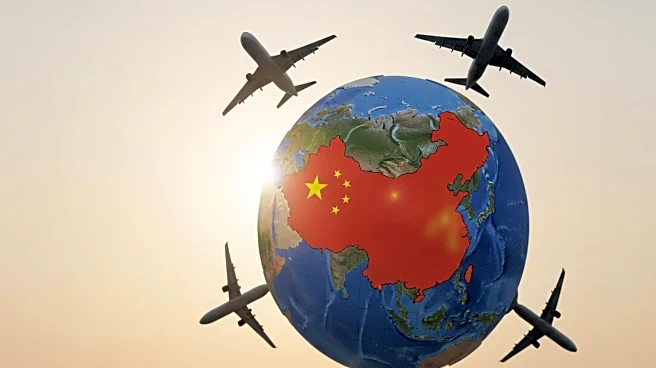What's Happening?
A Chinese philosophy student, identified only by his family name Gu, was deported from the United States after being questioned for hours at a Texas airport. Despite having valid paperwork and a full scholarship to study at the University of Houston, Gu was sent back to China and banned from returning for five years. This incident reflects the uncertainty surrounding President Trump's evolving policies on Chinese student visas. While Trump has expressed a desire to welcome Chinese students to support American schools, there remains suspicion among some U.S. officials and lawmakers regarding students in advanced technology fields and their potential links to the Chinese government.
Why It's Important?
The deportation of Gu highlights the broader tensions in U.S.-China relations, particularly concerning educational exchanges. The incident underscores the challenges faced by Chinese students in the U.S., who may encounter increased scrutiny and potential deportation despite having valid visas. This situation could impact U.S. universities that rely on international students for financial stability and cultural diversity. The conflicting messages from the Trump administration may also affect diplomatic relations with China, as Beijing has protested the treatment of its students, citing discriminatory practices.
What's Next?
The future of Chinese students in the U.S. remains uncertain as the Trump administration continues to navigate its visa policies. Potential changes could include stricter regulations or increased scrutiny for students in sensitive fields. Universities may need to adapt to these policies, potentially seeking alternative sources of international students or advocating for clearer guidelines. Diplomatic discussions between the U.S. and China may also address these issues, aiming to balance national security concerns with educational collaboration.
Beyond the Headlines
The deportation incident raises ethical questions about the treatment of international students and the balance between national security and academic freedom. It may also influence the perception of the U.S. as a welcoming destination for global scholars, potentially affecting its reputation and attractiveness to international talent. Long-term shifts could include changes in the demographics of international students in the U.S. and the strengthening of educational ties between China and other countries.










